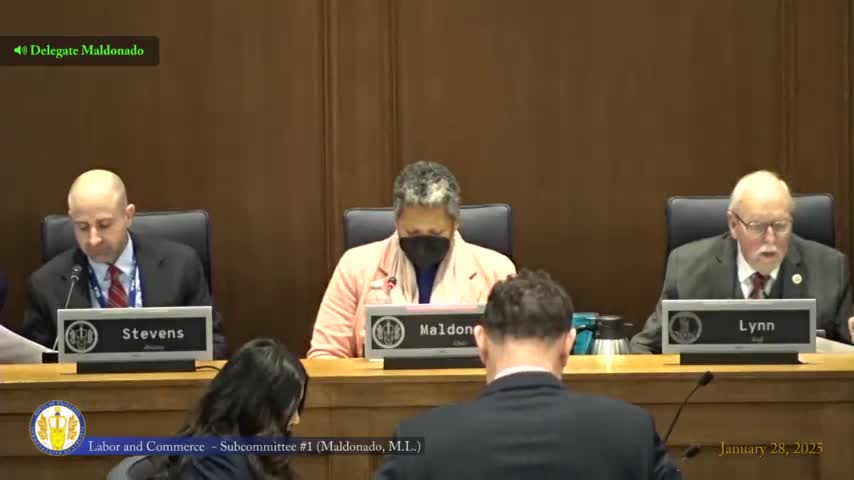Subcommittee tables bill that would have required most PBM rebates be passed to patients at point of sale
Get AI-powered insights, summaries, and transcripts
Subscribe
Summary
HB2773 proposed requiring 80% of manufacturer price concessions (rebates) be passed through to patients at point of sale to lower out‑of‑pocket costs. After intense debate over mechanics and likely downstream effects on premiums, the subcommittee tabled the bill 4‑3.
Delegate Milday (sponsor) introduced House Bill 2773, a proposal to require pharmacy benefit managers (PBMs) and plans to pass a large share of manufacturer price concessions (rebates) through to patients at the pharmacy.
The bill would have directed 80 percent of price concessions and rebates to be shared with the patient at point of sale, reducing copayments, coinsurance or deductibles. Sponsor testimony framed the change as a way to deliver savings directly to sick patients who face high out‑of‑pocket costs for specialty drugs. "If you're really sick and you have expensive drugs, this eighty/twenty split will benefit you the most," the sponsor said, noting national drug spending figures cited in testimony.
Industry testimony against the bill argued rebates are part of complex net‑pricing arrangements and that forcing pass‑throughs could raise plan or employer costs and premiums. Doug Gray of the Virginia Association of Health Plans and other witnesses said existing rebate arrangements fund benefits and help keep premiums lower for many enrollees; the bill’s text also specifically excluded the state health plan from point‑of‑sale requirements, a point witnesses highlighted.
Other witnesses — including physicians and patient advocates — urged reform and described cases in which patients paid high coinsurance while rebates flowed to plans or intermediaries. Online testimony from a physician cited FTC findings and alleged PBM practices that do not benefit patients directly.
Committee action: after testimony and discussion the subcommittee voted to table HB2773 by a 4‑3 vote. The vote halted further action on the bill in this subcommittee for now.
Context and next steps: proponents said they will continue to press for PBM transparency and consumer protections; opponents urged further study to understand effects on premiums, employer plans and Medicaid/state rebate revenues.
